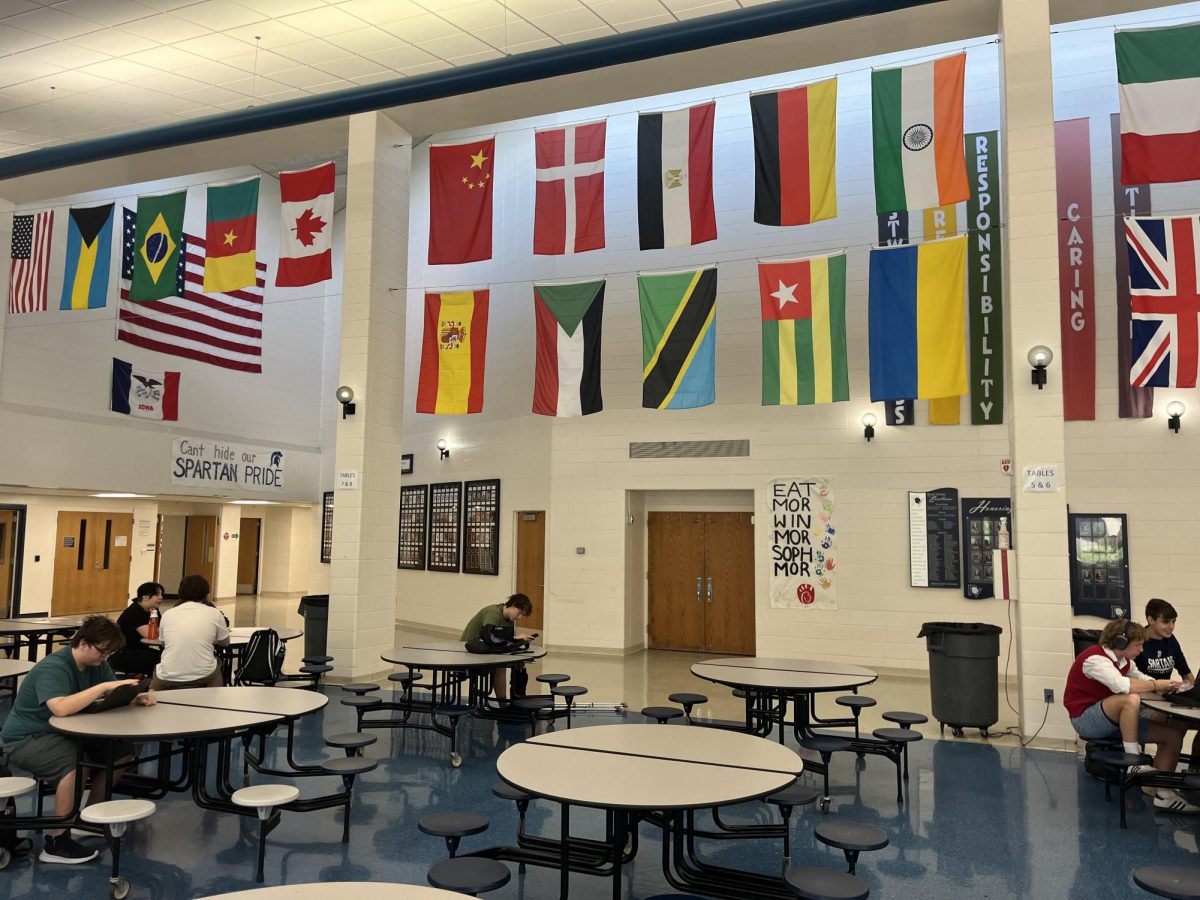Since the late 1800s, the United States of America has been widely viewed as the most powerful nation in the world. After winning World Wars I and II and the Cold War, America reigns as the world’s sole superpower. Coupled with the most powerful economy and military in the world, this title remains to this day.
Even though the US has extensive power, more nations choose to ignore it.
America’s respect has been especially questioned by a few select countries, including Iran. On Sep. 18, 2023, the Iranian government agreed to release five prisoners in exchange for the US government giving up six billion dollars in frozen Iranian oil assets and five Iranian prisoners being held in America.
The imprisoned Americans released from Iran included businessmen Siamek Namazi and Emad Shagri, Morad Tahbaz, an environmental activist and two others who chose not to have their names released. Although imprisoned, the US government has stated that the charges against the Americans by Iran were not evidence based.
On the other hand, the freed Iranians were Kambiz Attar Kashani, who was imprisoned for trying to illegally export US goods and technology to banks in Iran, Mehrdad Moein Ansari, who attempted to obtain equipment that could be used to build nuclear weapons and Reza Kafrani, who was caught buying sanctioned lab equipment.
Also released were Amin Hasanzadeh, who attempted to email sensitive information to Iran, and who had worked at an Iranian company that was linked to missile development and Kaveh Afrasiabi, imprisoned for being on Iran’s payroll while being in the US without approval.
If this doesn’t seem like the fairest of tradeoffs, it’s because it isn’t.
History and economics teacher Erin Klage voiced her opinion on the deal. “It has always been the US’ policy not to negotiate with terrorist organizations. It is essentially giving into their demands. We have seen presidents in the past get in trouble for the same thing with the Iran contra deal. It is definitely shady, but brings up the question of whether the policy is still relevant. You want to protect your citizens but also not look weak on the world stage,” she stated.
While all can agree that the return of falsely imprisoned Americans is always a positive, the trade could bring major consequences. Secretary of State Anthony Blinken assured that the money will be used correctly. “And from day one, our sanctions have clearly – and indeed always – exempt the use of resources for humanitarian purposes, because our aim is not to harm the Iranian people.”
Iran’s president Ebrahim Raisi seemed to disagree, stating “This money belongs to the Islamic Republic of Iran and naturally we will decide, the Islamic Republic of Iran, will decide to spend wherever we need it.”
With control over the frozen funds up in the air, major concerns arise. With the deal being struck just after the 22nd anniversary of the terrorist attacks of Sept. 11, 2001, the threat of the continuing development of Iran’s nuclear program over the past few years and the US considering the country a state sponsor of terror, it is very possible that the funds reach the wrong hands.
Raisi went further to add, “Humanitarian means whatever the Iranian people need”. With an answer like this, it is unsure whether the Iranian people “need” food or advancements in terrorism or their nuclear program.
Not only has the government jeopardized future national security by freeing dangerous individuals and unfreezing sanctioned assets, it has also encouraged future behavior like this, not only by Iran, but other countries as well.
If the Iranian government knows that the US is willing to give up assets in exchange for prisoners, what is stopping them from taking more hostages?
In 2021, current Iranian vice president of economic affairs Moshen Rezaee was reported saying he would capture 1000 American hostages and demand $1 billion for each of them.
Additionally, what is stopping other countries that have been on the offensive towards America, such as China or Russia, from looking at Iran’s tactics and deciding to do the same thing?
Klage looked at the issue from a historical perspective and believes that the negotiation set a precedent for future events like it to occur. “When we have looked at it historically in the past, these deals have come out in some sort of bigger scandal. By openly admitting what happened without inquiry sets a precedent. If we are shown to do these deals, what other foreign power might use that to their advantage?” she wondered.
No matter what one might think of the hostage situation, it can’t be denied that the US does not demand the respect on the world stage that it used to.
The main reason behind this is the reduction in the current administration’s willingness to stand up to foreign rivals and even domestic ones.
Whether it be the soft on China policies and failure to deter their spying operations, the quick withdrawal from Afghanistan that left American service members dead and stranded, or the failure to deter Russia’s invasion of Ukraine, the Biden administration’s foreign policy has not been successful.
Coupled with the thousands of illegal immigrants crossing into the country each day, many foreign rivals see now as an opportunity to gain an advantage.
AP US Government and Politics teacher Joe Youngbauer was conflicted about whether America’s respect was on the decline. “I want to say no, that our status and prestige around the world is still there. I think you’re seeing countries of the world at least be willing to challenge and kind of push the limit and push the envelope, not necessarily just curtailing our interests. History is an interesting teacher here, I don’t know if that is truly a reflection of us, but it is still how America responds to those things that matters. There’s more willingness to challenge, but is that truly a reflection of our status, maybe?” he questioned.
When it comes to foreign adversaries, sometimes more than just negotiation is needed. The United States has the most powerful economy and military in the world, and sometimes the use of those assets is what is right for not only America, but to prevent threats in other parts of the world as well.
Time will only tell if countries like Iran and China will continue to push the US, and at what point America will have had enough and regain the respect that many countries seem to have lost for it, or if it is forced to.
Youngbauer believes there are still ways to peacefully negotiate. “I still believe in diplomacy, I still believe in the interactions amongst countries and the US at the forefront of that. I think there is evidence that we need to do better.”
A white house official said “Biden is making five families whole again,” and while this is a good thing, if American respect continues to decline among foreign rivals, there is a possibility that without action, many more could be broken apart.









